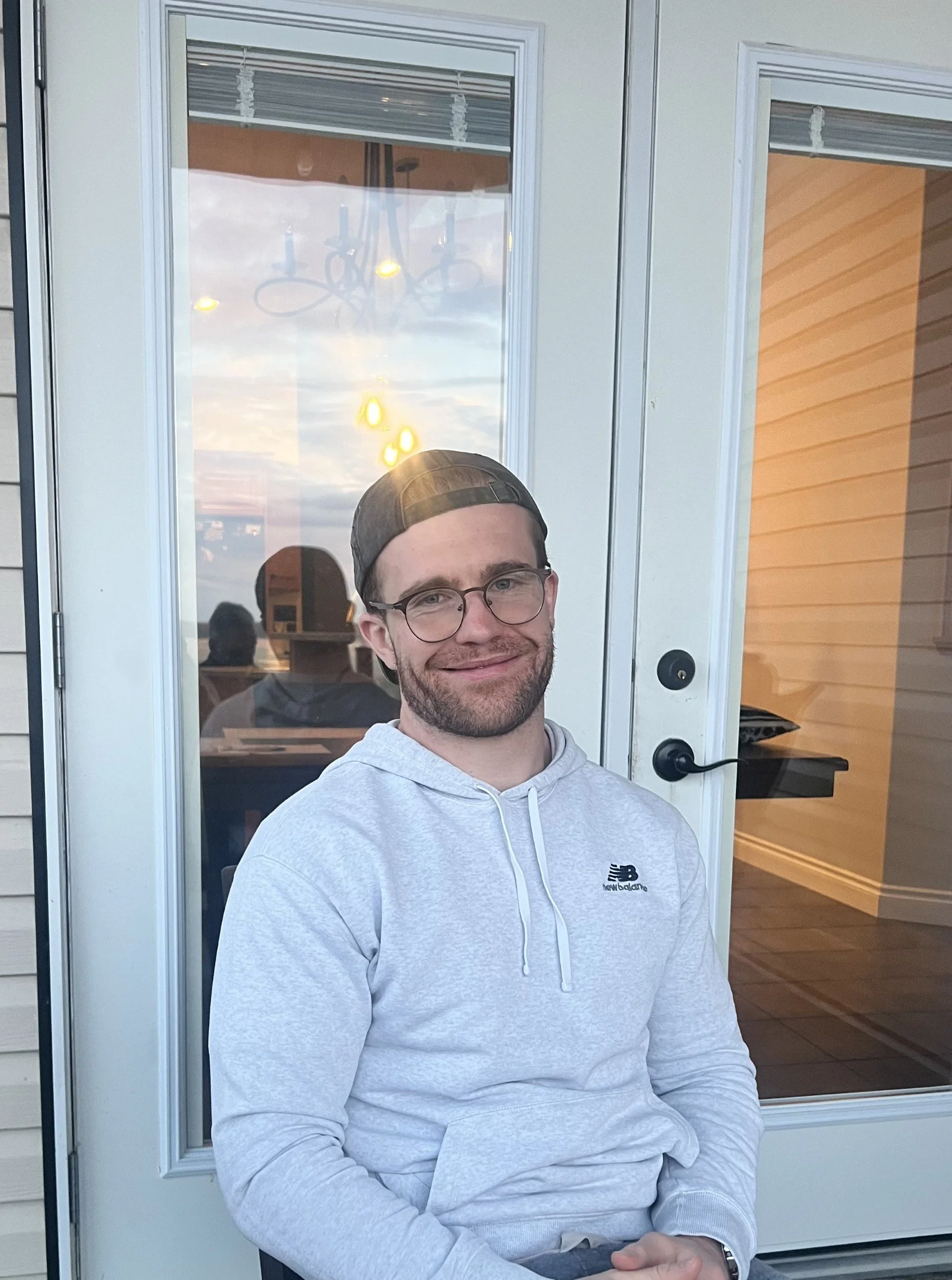
Michael Grisonich, MACP Registered Provisional Psychologist
Michael is a Registered Provisional Psychologist who works in three main areas. He offers psychodynamic therapy for people struggling with conflicting emotions, tension in relationships, or a sense that their reactions and ways of coping feel out of step with what they themselves want. He offers Exposure and Response Prevention (ERP) for OCD, the gold-standard psychological treatment for obsessive-compulsive disorder. And he provides Cognitive Processing Therapy (CPT) for PTSD and trauma, an evidence-based approach that helps people work through the beliefs and memories that maintain post-traumatic symptoms and distress.
Across all three areas, Michael’s approach is direct and grounded. Within a caring and understanding therapeutic relationship, he helps clients take a clear, honest look at the experiences they find most difficult and begin to engage with them in new, more constructive ways.
Availability: Accepting New Clients In-person or Online
Service Areas: Alberta
More about Michael
When I’m not working as a therapist—or sitting in a coffee shop reading something about therapy—I like to travel, play chess and golf, and train in Brazilian jiu-jitsu. Each keeps me engaged, learning, and, at times, a little frustrated.
In 2020, I left my life in Southern Alberta to teach English at a public university in Saigon, Vietnam. For nearly two years, I immersed myself in a beautiful country and culture—an experience that shaped me deeply and still means a lot to me today.
Education & Credentials
Masters of Arts in Counselling Psychology (Yorkville University)
Masters of Arts in Interdisciplinary Studies (Athabasca University)
Former teacher at a public university in Vietnam
Former teacher with Quebecois members of the Canadian Armed Forces.
Areas of Focus
Anxiety disorders
Obsessive-compulsive disorder (OCD)
Depression
Trauma
Relationship challenges
Men’s issues
Religion/spirituality and meaning
Insurance Coverage
Insurance coverage by provider;
Alberta Blue Cross
Alberta School Employee
Canada Life | Great-West Life
CVAP | Crime Victim
Equitable Life of Canada
Green Shield Canada
iA Financial Group
Johnston Group
Manulife
Maximum Benefit
SunLife
My therapeutic approach is guided by the problem we’re trying to solve. But across all areas, I work to create a caring and collaborative therapeutic relationship where difficult experiences can be explored with openness and support. I’ll aim to help you make sense of your inner experience and develop practical ways of responding to life’s challenges so that change feels both meaningful and sustainable.
Michael’s Approach
Know yourself
Step Back. See Deeper. Live Freer.
Michael’s therapeutic approach offers a chance to slow down and take a closer look at yourself. By exploring the patterns underlying your thoughts, feelings, and relationships, it is possible to develop a deeper understanding of who you are and how you relate to the world around you.
This kind of self-knowledge can create space for growth and for living with greater clarity and intention.
Why Self-Understanding Matters
Even when life appears to be going well on the outside, it’s common to feel stuck or unsettled inside. You might notice:
Repeating the same painful relationship dynamics
Wrestling with anxiety, guilt, or self-criticism
Feeling unsure about what you truly want or need
Therapy provides a space to explore what lies beneath the surface.
As you begin to understand yourself more fully, you open the possibility for change that is authentic, meaningful, and — most of all — enduring.
ERP Therapy for OCD
Break free from the cycle of obsessions and compulsions.
Living with OCD can feel exhausting. Intrusive thoughts seem to appear out of nowhere, and compulsions—like checking, repeating, or seeking reassurance—can feel near-impossible to resist. Even when you know these rituals don’t fully make sense, the anxiety can be overwhelming.
OCD creates a self-reinforcing cycle: obsessions trigger anxiety, compulsions bring brief relief, and the cycle begins again.
The good news? This cycle can be broken.
Why ERP?
Exposure and Response Prevention (ERP) is considered the first-line treatment for OCD by leading mental health organizations worldwide.
With ERP, you gradually face fears in a safe, structured way while resisting compulsions. This creates opportunities for new learning—your brain begins to recognize that anxiety can naturally rise and fall on its own, and that feared outcomes are often far less dangerous than they seem.
Research suggests that ERP can even lead to changes in the brain circuits involved in OCD. While no treatment works for everyone, many people who engage in ERP experience meaningful relief, freeing them up to spend their time and mental energy on what matters most.
How We Serve
-

Free Consultations
In Person or Online
15-Minutes
Finding the right therapist is an essential step in your journey toward healing and growth. That’s why we offer a free 15-minute consultation to help you explore whether our affordable therapy and assessment services—available in person and online—feel like the right fit.
-

Individual Therapy
In Person or Online
60 / 90 / 120 Minutes
From anxiety and depression to navigating big life changes, our therapists provide personalized support tailored to your needs. Together, we’ll work on developing tools, insights, and confidence to help you face challenges and create meaningful change in your life.
-

Couples Therapy
In Person or Online
60 / 90 / 120 Minutes
Every relationship faces challenges, whether it’s communication breakdowns, conflict, or the stress of life transitions. Our couples therapy provides a supportive space where partners can better understand one another, rebuild trust, and develop healthier ways of connecting.
-

Adolescents & Teens
In Person or Online
60 / 90 / 120 Minutes
Adolescents and youth face unique emotional, social, and developmental challenges, from anxiety and ADHD to trauma and school stress. Our adolescence therapy sessions provide a safe, engaging space for kids to explore their feelings and learn coping strategies in ways that fit their stage of growth.








